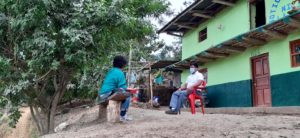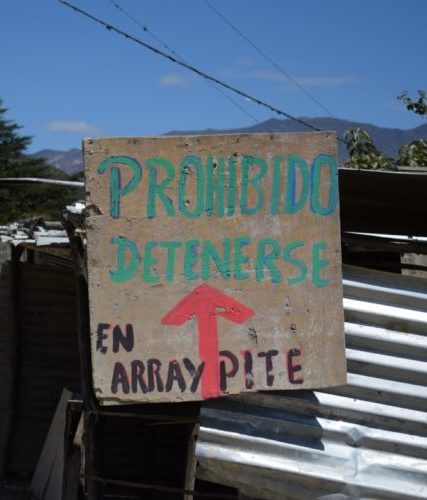Peru facing rural Covid-19 disaster

A disaster is looming in Peru caused by Covid-19 as thousands return to their rural homes where there are limited resources and facilities, according to research carried out at the University of St Andrews.
When Covid-19 struck Peru in March 2020, thousands of Peruvians chose to leave large cities and return to their community origins in rural locations.
In Piura, northern Peru, the challenges faced by those returning and their host communities became a severe concern to researchers from the Centro de Investigación y Promoción del Campesinado (CIPCA) in Peru and the Centre for Amerindian and Latin American Studies (CAS) at the University of St Andrews who have been examining the impact of the El Niño phenomenon on livelihoods in the region since 2016.
Funded by a ‘Rapid Response’ grant from the Scottish Funding Council (SFC)’s Global Challenges Research Fund (GCRF), the research published via the Centre for Amerindian and Latin American Studies (CAS) seeks to understand the emerging emergencies from the global pandemic.
The government of Peru established a state of emergency in March 2020 and enforced mandatory social distancing, restricting all movement across the country. Hundreds of thousands of migrants lost their employment and livelihoods as well as being left exposed to new circumstances of economic fragility and social vulnerability.

Despite the significance of the Covid-19 situation, little was known about returning rural migrants: their migratory trajectories, their current situation, and their short and medium-term plans.
Professor Nina Laurie, Professor of Human Geography at the University of St Andrews, said: “We are very grateful to the SFC GCRF for funding this original ‘first of its kind’ work, carried out in collaboration with our Peruvian colleagues at CIPCA under very challenging circumstances.
“The pandemic has primarily displaced young families in rural Peru, heightened the vulnerability of women and that many migrants have relied on their families and social networks for travelling to their origin communities.
“The plight migrants in Peru face is one of deep uncertainty in the near future, combined with the lack of resources from local and national authorities as well as the recovery from Covid-19. Migrants who return to their places of origin, whether it be for a short time or to stay, are experiencing a situation created by uncertainty and vulnerability.”
Ana Gutierrez Garza, Director of the Centre for Amerindian and Latin American Studies (CAS) at the University of St Andrews, said: “This research brings to light the obstacles that people in Peru had to overcome in order to survive during Covid-19 times.
“The case is an illustration of the consequences that structural conditions of inequality cause in this part of the world and people’s daily efforts to surmount them. More importantly, the case – though unique – reflects wider global problems that speak of the ways in which states all over the world have put aside their obligation to care and safeguard the wellbeing of people.” [news release]